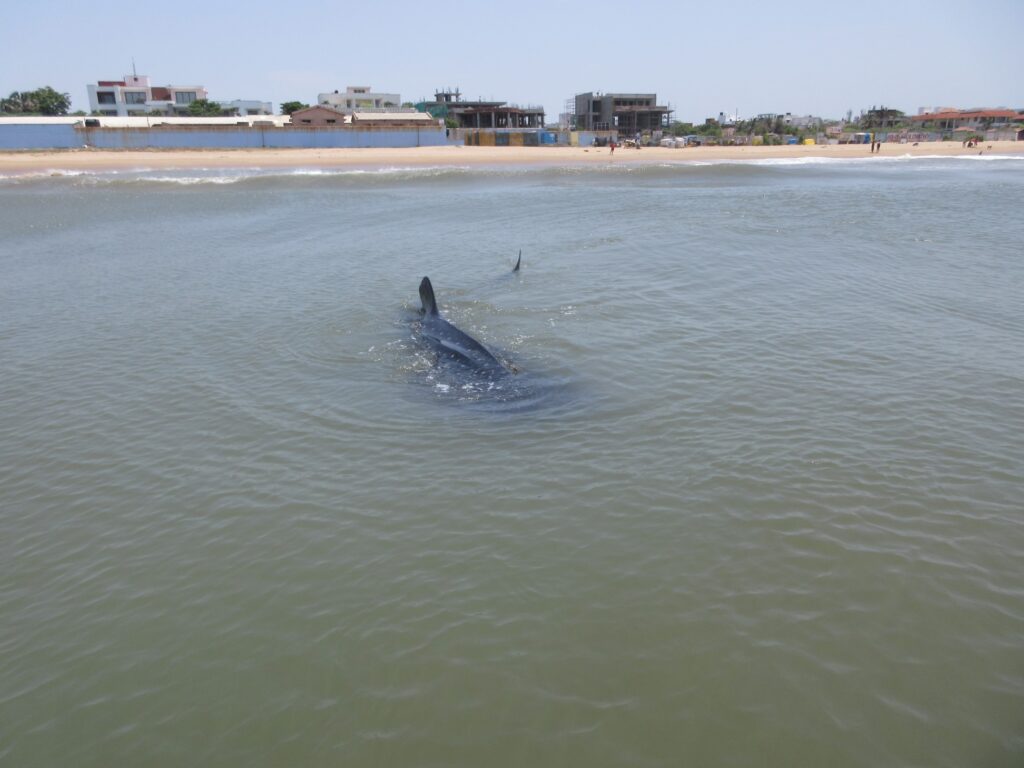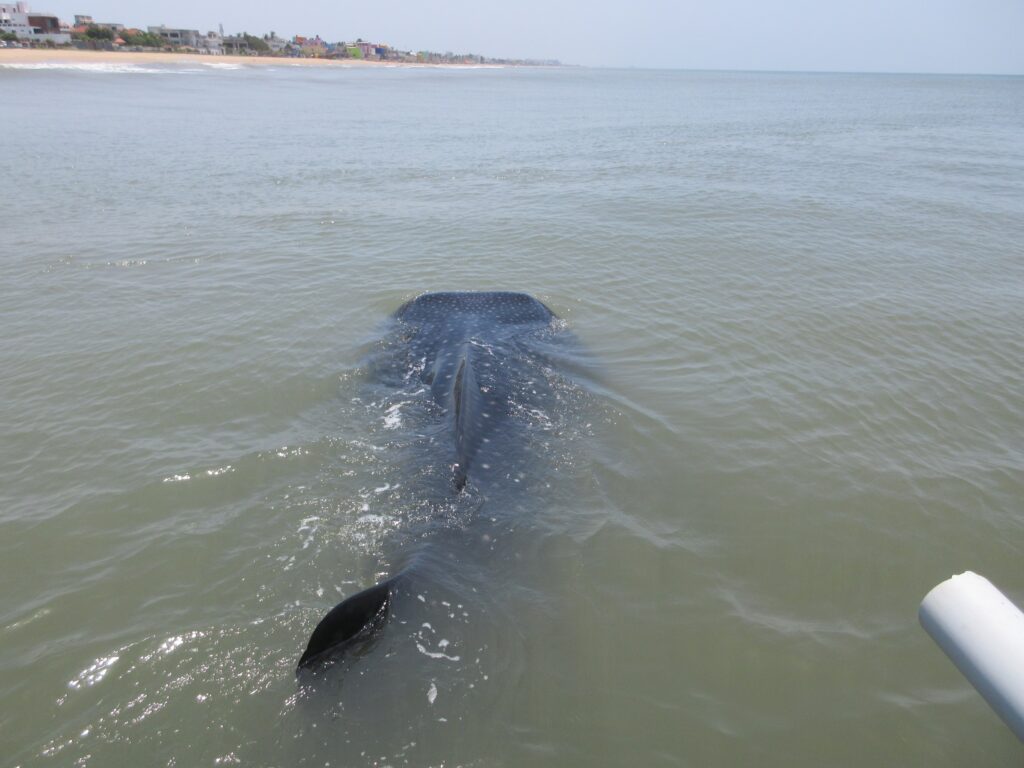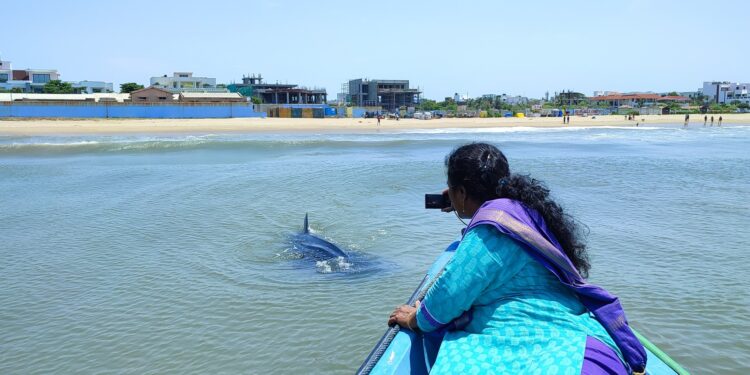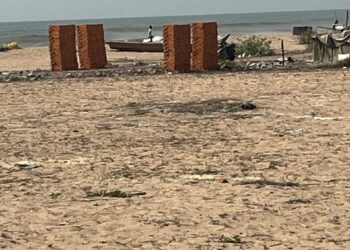Juvenile Whale Sharks were spotted off the coast of Neelankarai on June 9 and 10 and off the coast of Panayur on June 16. Members of the TREE Foundation were immediately alerted and they monitored the situation. Here are the details as shared by the TREE Foundation on the sightings at Neelankarai:
The fishermen of Periya Neelankarai fishing village informed T.A.Pugalarasan, TREE Foundations Senior Sea Turtle Protection Force member, that they had spotted over 20 whale sharks off their coast on 9th forenoon. Yet again around 4 p.m. the fishermen noticed one lone juvenile whale shark swimming in just one location and informed Pugalarasan. He immediately informed the TREE Foundation Team to come for a survey to understand the reason for the whale sharks presence in the near shore waters, and that too in one location. The Marine Mammal Conservation, Stranding and Rescue team from TREE Foundation responded to the call immediately.
The team recognised the animal as a juvenile Whale Shark (Rhincodon typus). We observed that its mouth contained rows of tiny teeth and few filter pads which it uses to filter feed. Whale Sharks have five large pairs of gills. Its head is wide and flat with two small eyes at the front. Whale sharks are grey with a white belly. The skin is marked with pale yellow spots and stripes which are generally unique to each individual. The Whale Shark had three prominent ridges along its sides.

This young whale was about 15-18 feet long. Its tail and dorsal fin were clearly visible. After observing the young Whale Shark in one location from a safe distance, the team decided to observe if there were any injuries or if it was entangled in a ghost net. So Pugalarasan dived into the water for better observations. As the sea was rough and the water murky he could only note that there were no injuries on the top of the animal but could not observe underwater.
Again on the 10th morning the fishermen of Periya Neelankarai observed a Whale Shark near the shore in the same location. After observing the animal for a long time once again Pugalarasan called the TREE Foundation Team.
As the sea was much calmer today (June 11), the team were able to observe the animal more clearly. Once again without any hesitation, Pugalarasan, who is the 2017 World Oceans Local Hero runner up, dived into the water to observe if the animal was entangled in any ghost nets or was injured. He returned once he was sure that the animal was not entangled in any gear or injured. The team bid adieu to the young whale shark at location coordinates – N.12 0 57.301, E 80 0 15.895.

The Whale Shark is the largest non-cetacean animal in the world. It inhabits all tropical and warm-temperate seas. Primarily pelagic, seasonal feeding aggregations occur at several coastal sites. The whale shark is a filter feeder. It feeds on macroalgae, plankton, krill and small nektonic life, such as small squid or vertebrates. The many rows of vestigial teeth play no role in feeding. Feeding occurs either by ram filtration, in which the animal opens its mouth and swims forward, pushing water and food into the mouth, or by active suction feeding, in which the animal opens and closes its mouth, sucking in volumes of water that are then expelled through the gills. In both cases, the filter pads serve to separate food from water. Whale sharks have been observed “coughing”, presumably to clear a build-up of particles from the filter pads. They migrate to feed and possibly to breed. The biological characteristics of the Whale Shark make it extremely susceptible to overexploitation. Its large size, longevity and slow growth mean that recruitment is limited and also suggests that populations are slow to recover from disturbances. It is facing a high risk of extinction in the wild, in the medium-term future.
Helpful citizens are requested to contact TREE Foundation at 94443 06411, 94440 52242 or [email protected] , [email protected], when they see any dead or alive stranded marine animals along the coast.
TREE Foundation is at 5/25 Blue Beach Road, Neelankarai, Chennai: 600 115, Contact No: 91 94443 06411. For more check out www.treefoundationindia.org | Facebook Page: Tree Foundation India.











